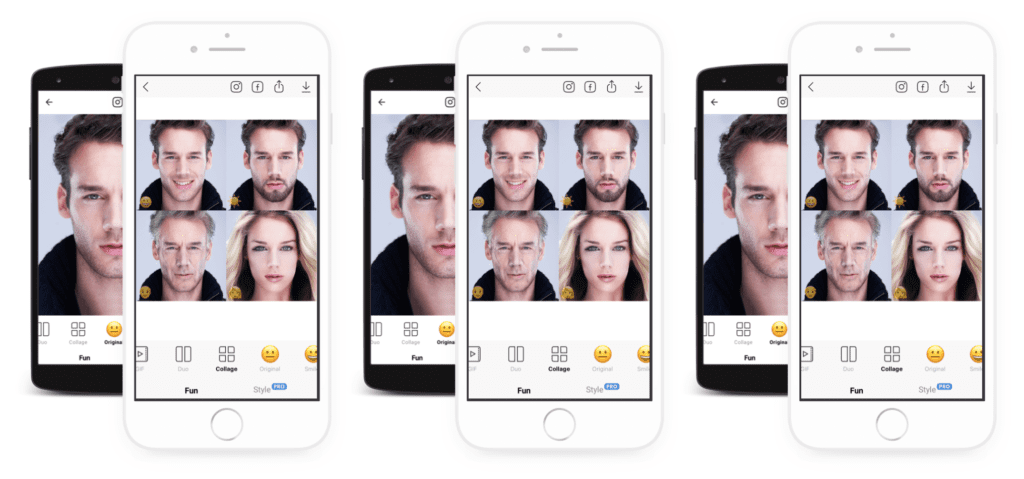Late last year, PopSugar’s #twinning app had a viral resurgence. The celebrity lookalike tool, which digital publisher PopSugar first released in early 2018, enables you to see what celebrities (out of a database of over 3 million) you look most like. All you have to do is upload a selfie, wait “about a minute or so,” and PopSugar’s algorithm ranks the celebs with which you share the greatest resemblance. That is precisely what hordes of people did – without ever reading the terms of service, which clearly stated that by submitting your photos, you granted rights to PopSugar to monetize, modify, and share them “in any media formats and through any media channels.”
Fast forward to this week and another viral app is upon us: FaceApp, one that lets you see how you will look as an old(er) person based on photos you submit of yourself. Owned by Saint-Petersburg, Russia-based Wireless Lab, the app has caught on again after it was first introduced a couple of years ago, and now, chances are, your social media feeds are inundated with your friends’ results, wrinkled and grayed, and ripe for Russian co-opting.
Just as with PopSugar’s #twinning app, FaceApp comes with a long list of terms that those who download the app agree to like it or not by … downloading the app and using it. These terms include granting FaceApp “a perpetual, irrevocable, nonexclusive, royalty-free, worldwide license … to use, reproduce, modify, adapt, publish, translate, create derivative works from, distribute, and display your User Content and any name, username or likeness provided in connection with your User Content,” which it may use for “commercial purposes,” i.e., in exchange for compensation.
All of these uses can be carried out by FaceApp “in all media formats and channels now known or later developed, [and] without compensation to you.” And more than that, because the license is “transferable,” FaceApp can take the content and license it to others, who may then be able to do all of the above, as well, and not have to pay you a cent for doing it.
These terms are hardly out of the ordinary compared to those maintained by the various social media platforms we all use. On the other hand, Wireless Lab is raising eyebrows due to some of the processes it carries out, which are not clearly laid out for users by way of its terms.
For instance, “One thing that FaceApp does is it uploads your photo to the cloud for processing,” according to TechCrunch. It does not do on-device processing, which “keeps your data on the device and thereby, ensures [a greater level of] security and privacy,” per MIT Tech Review. This method of processing is distinct from how Apple’s proprietary apps, for instance, treat info., TechCrunch’s Matthew Panzarino notes.
The problem with sending your data to the cloud for processing? As Fast Co. sets out, “FaceApp does not alert [its] users that their photos have been uploaded to the cloud, nor does it specify in its policies if the company retains your original photo and in using it with the app, what the company is allowed to do with it.” Still yet, assuming Wireless Lab does keep your photos and other data, it does not specify how it stores or protects them. It does, however, state that it can transfer your data to any location where they have a facility, including … well, Russia.
There is “no evidence that FaceApp is doing anything shady with your photos,” Fast Co. asserts, and as Panzarino states, there are some promising aspects at play, namely the fact that “the app does indeed let you pick a single photo [to submit] without giving it access to your photo library.” In other words, “It allows you to give an app one photo instead of your entire library, and it can’t see any of your photos until you tap one. This is far better than committing your entire library to a jokey meme app.”
However, Panzarino notes that “given how many screenshots people take of sensitive information like banking and whatnot, photo access is a bigger security risk than ever these days.” In other words: this is something worth paying attention to.











